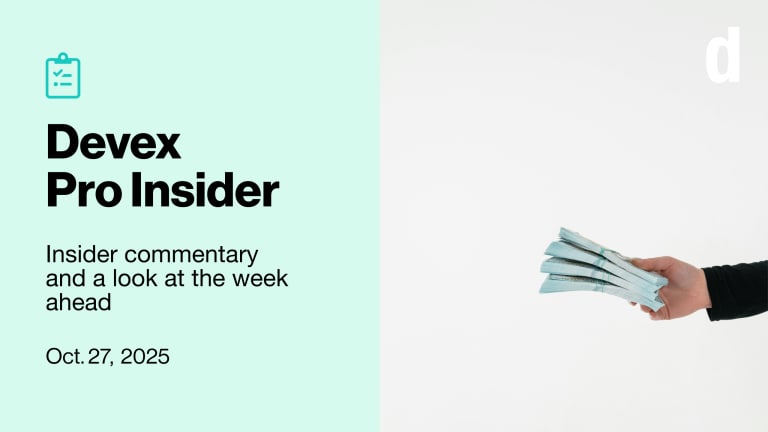When she’s not navigating airports en route to the next global health event, Loyce Pace performs with her chorale group in Washington, D.C., singing hits from Dionne Warwick & Friends’ 1986 Grammy-winning “That’s What Friends Are For” to Irish musician Hozier’s “Nina Cried Power.”
The latter song serves as her pick-me-up.
“It's an homage of sorts to, I would say, the Black Civil Rights Movement, but even more broadly, the struggle as they say, but not just the pain of it, [but] the power of it. So that's something that I really do lean on,” she told Devex.
Printing articles to share with others is a breach of our terms and conditions and copyright policy. Please use the sharing options on the left side of the article. Devex Pro members may share up to 10 articles per month using the Pro share tool ( ).
Search for articles
Most Read
- 1
- 2
- 3
- 4
- 5








